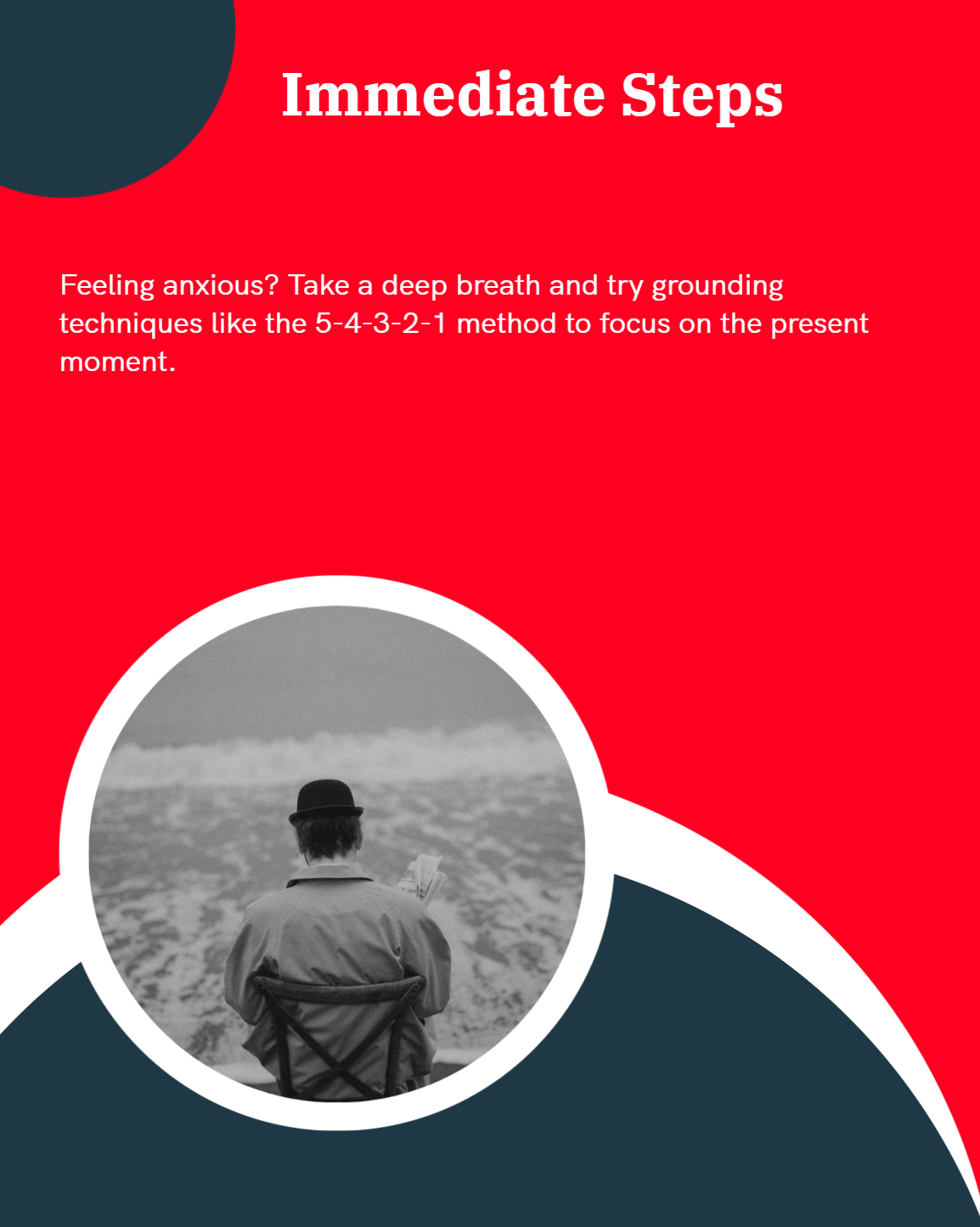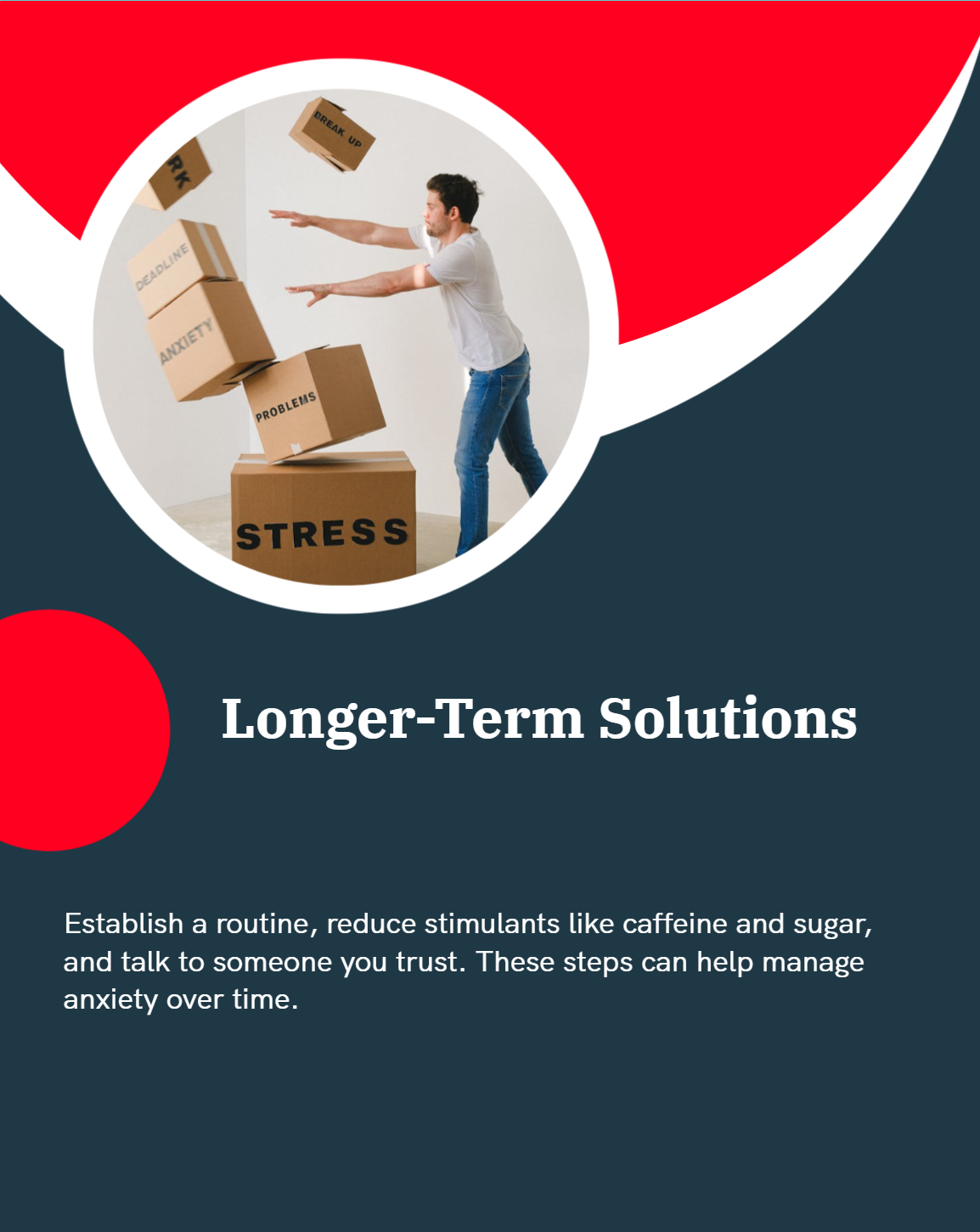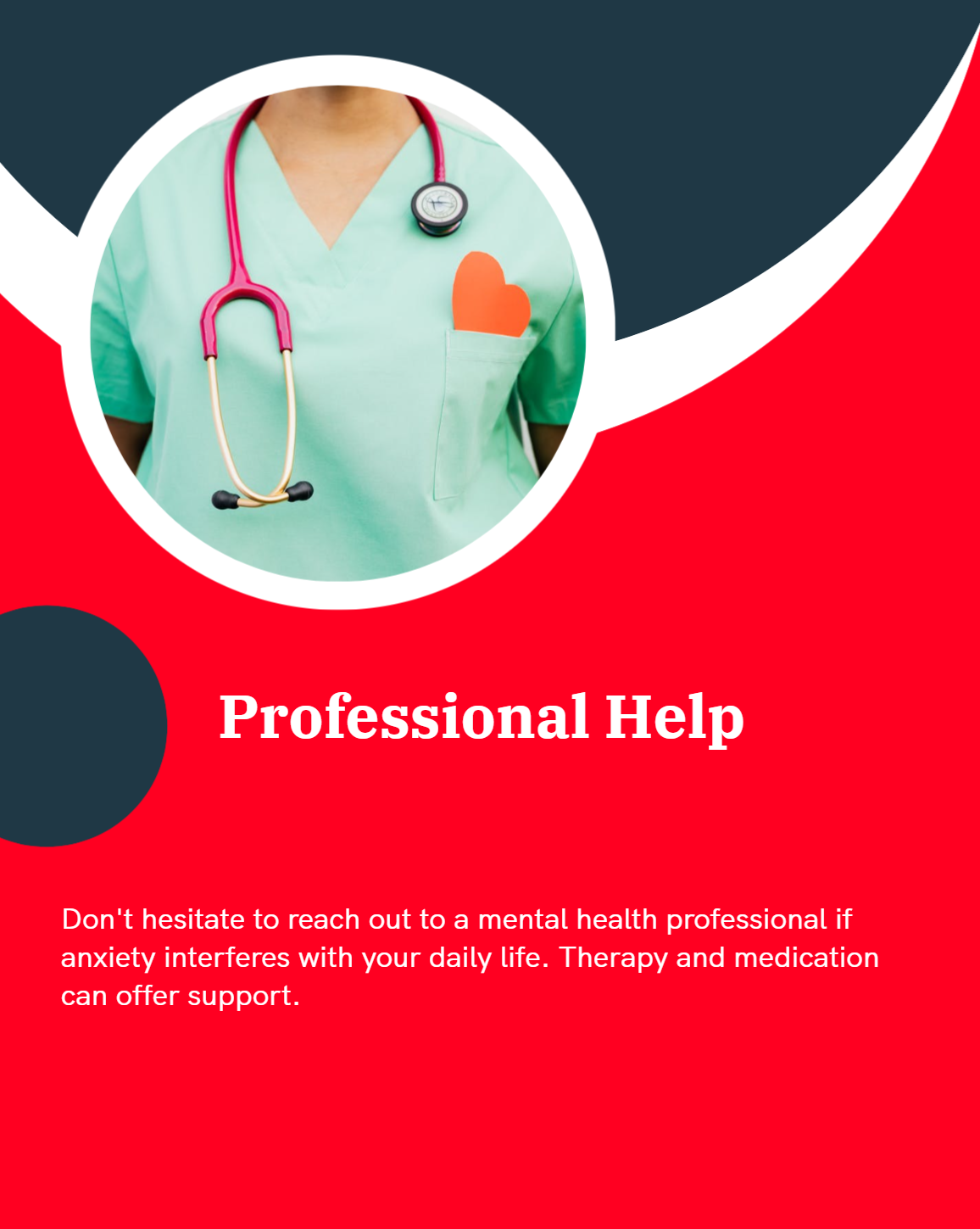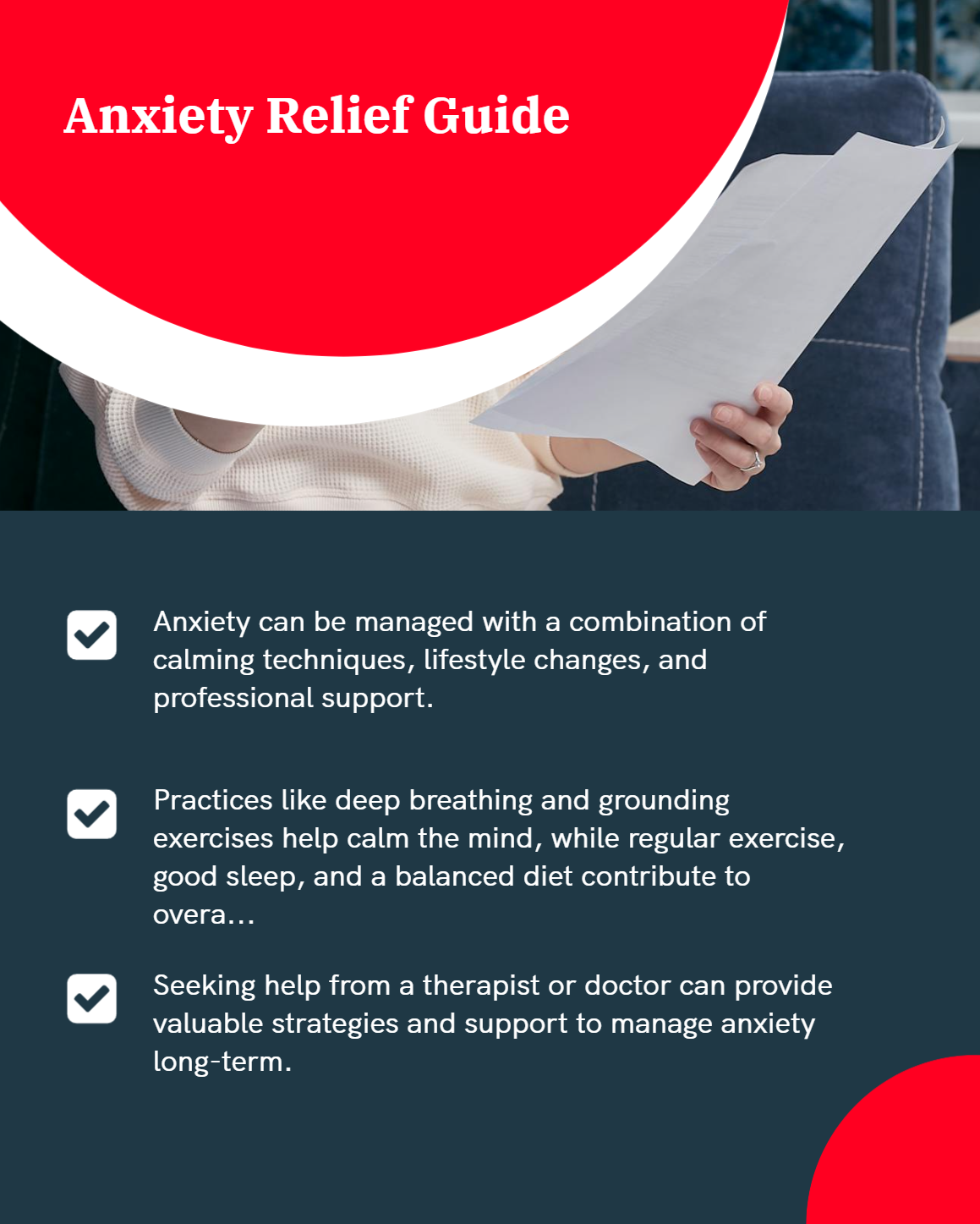Anxiety is a natural response to stress or danger, but sometimes it can hit you out of nowhere, leaving you puzzled and overwhelmed. Feeling anxious for no apparent reason can be frustrating, but it’s important to know that this sensation is common and manageable. This guide explores effective strategies to regain control, soothe your mind, and navigate through these unexpected moments of unease.
Anxiety can stem from a variety of factors, even when you’re unaware of them. These could include:
Your body's fight or flight response may activate even when there’s no immediate danger. This physiological reaction can cause:
Recognizing these symptoms as part of a natural response can help reduce fear.

Deep, controlled breathing helps regulate your nervous system. Try the 4-7-8 technique:
Grounding exercises bring your focus back to the present moment. Identify:
This method helps redirect your thoughts away from anxiety.

A consistent daily schedule minimizes uncertainty and provides structure, helping you feel more in control.
Caffeine, nicotine, and sugar can exacerbate anxiety. Reducing these substances in your diet can help prevent sudden anxious feelings.
Sharing your feelings with a friend, family member, or therapist can help you process and release pent-up emotions.
Writing down your thoughts provides clarity and can reveal hidden stressors. Use prompts like:
Regular exercise helps release endorphins, which naturally combat anxiety. Activities like walking, swimming, or dancing are simple yet effective.
Sleep deprivation often worsens anxiety. To improve your rest:

Recognizing When Anxiety Is a Concern
If anxiety becomes frequent or interferes with your daily life, consider consulting a mental health professional. Symptoms to watch for include:
Essential oils like lavender, chamomile, or bergamot can have calming effects. Use a diffuser or apply diluted oils to your wrists.
A well-balanced diet can support mental health. Include:

Keep track of your emotional patterns to identify triggers early. Consider using a mental health journal or mood-tracking app.
Cultivate positivity by listing three things you’re grateful for daily. This practice shifts focus from worries to blessings.

Feeling anxious for no apparent reason can be unsettling, but it’s important to remember that these feelings are manageable. By incorporating calming techniques, seeking support, and making lifestyle changes, you can reclaim your peace of mind. Anxiety may come and go, but with the right tools, you can learn to face it with resilience.
Yes, it’s common to experience anxiety without a clear trigger. It often results from hidden stressors, biological factors, or lifestyle influences.
Absolutely. Diet plays a key role in mental health. Reducing caffeine and sugar while eating nutrient-rich foods can help.
Practice discreet breathing exercises or grounding techniques to regain control. Excuse yourself to a quieter space if needed.
If anxiety symptoms persist or are accompanied by severe physical symptoms like chest pain, consult a doctor to rule out medical conditions.
Yes, techniques like meditation, exercise, aromatherapy, and a balanced diet can help manage anxiety naturally.
LONG IMAGE
 09.01.2025
09.01.2025